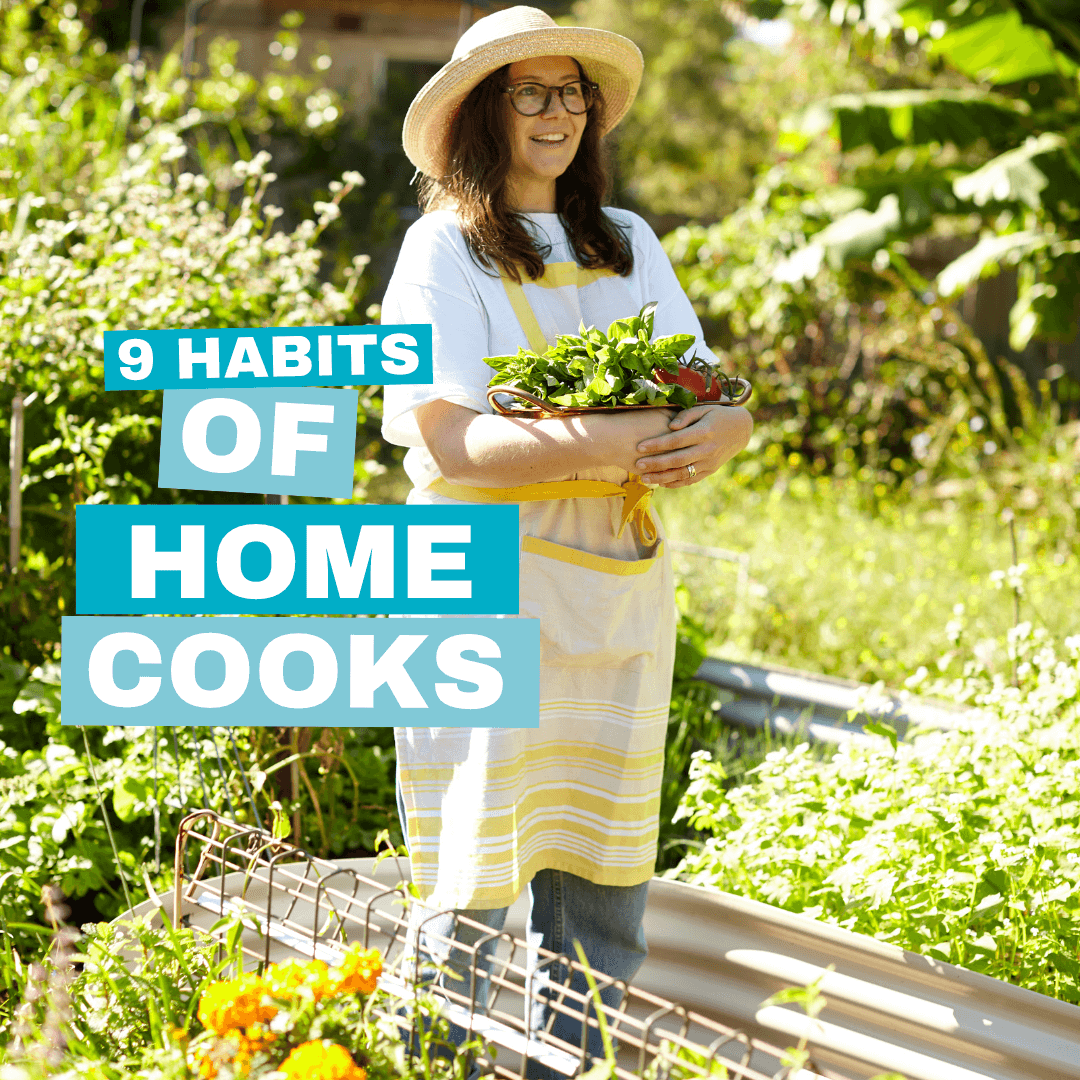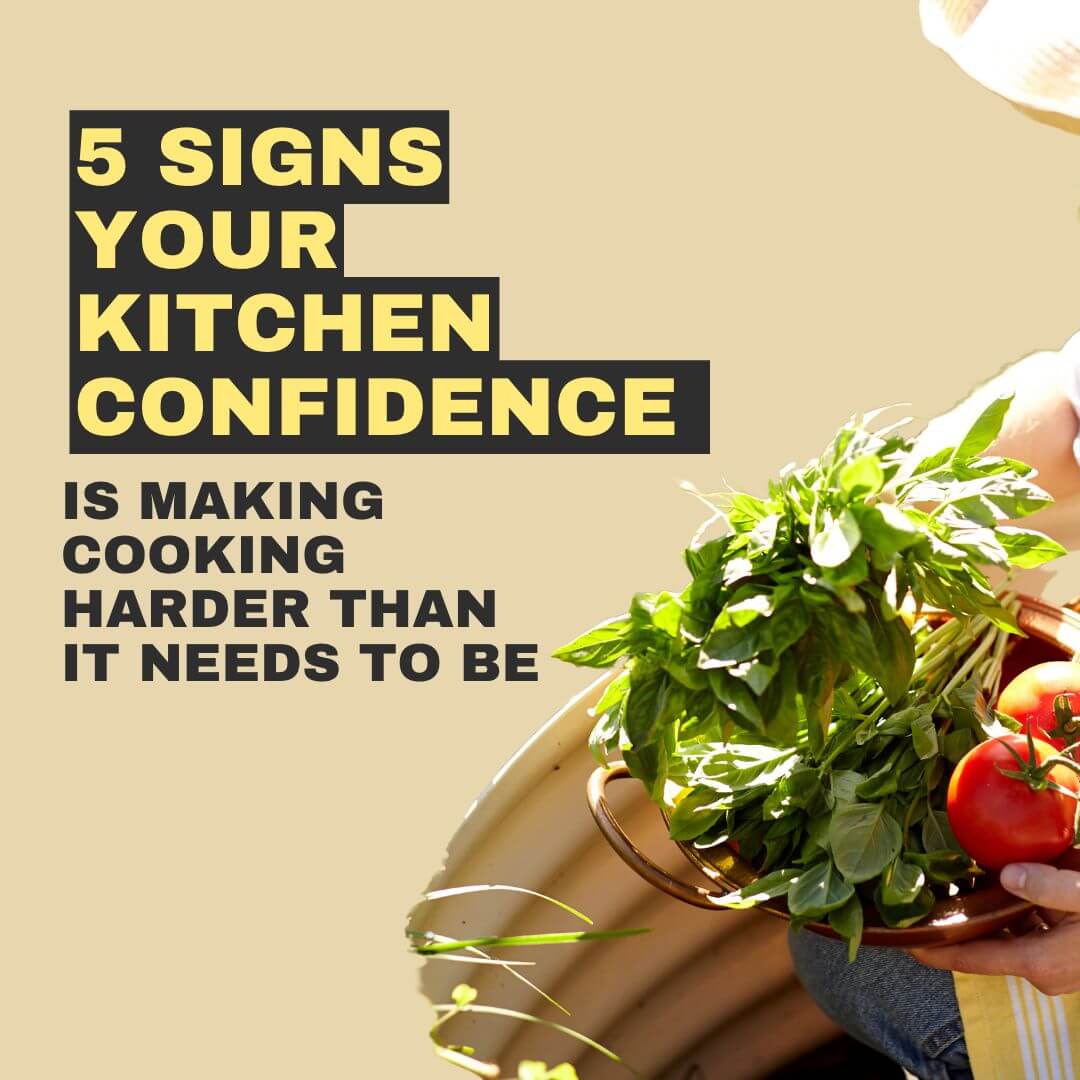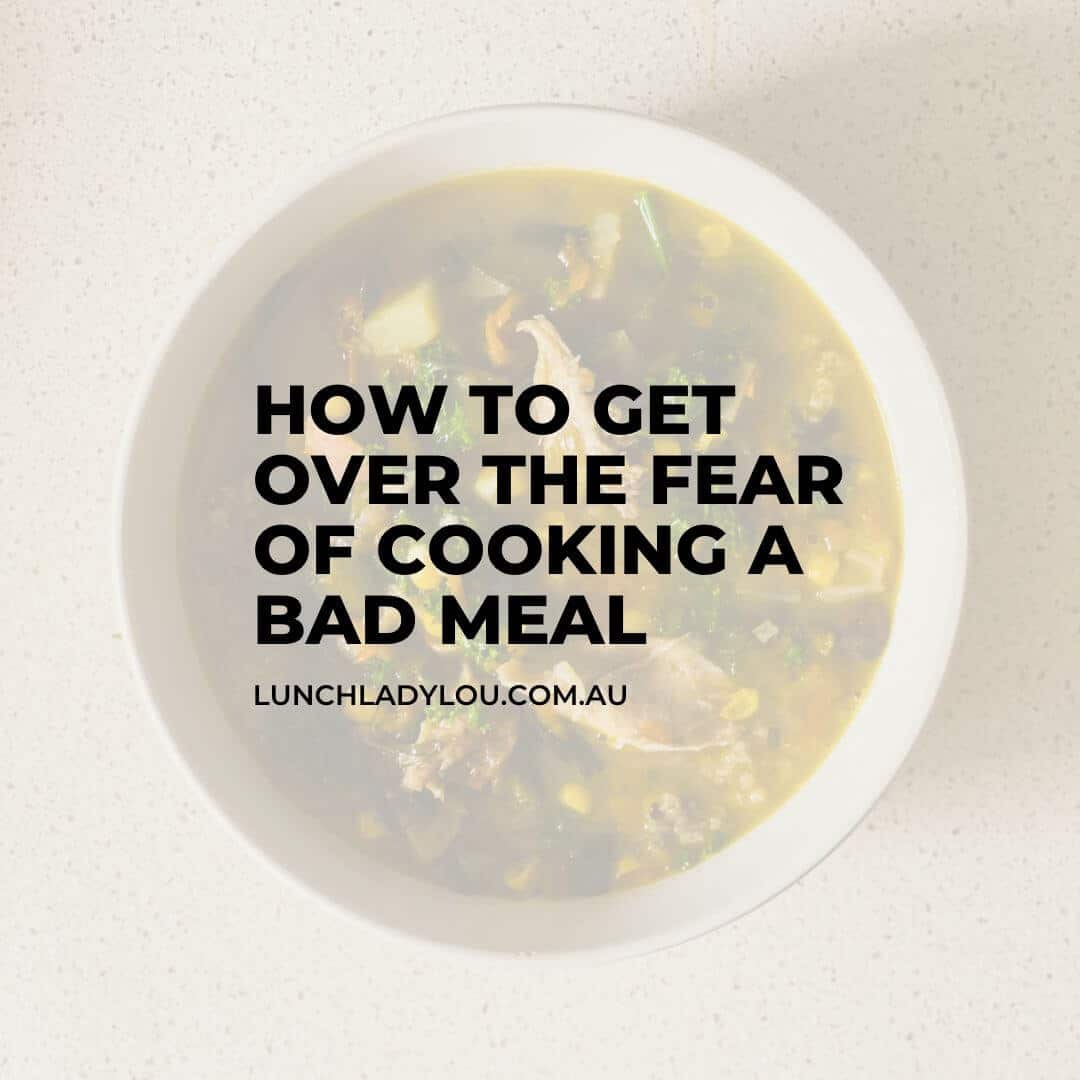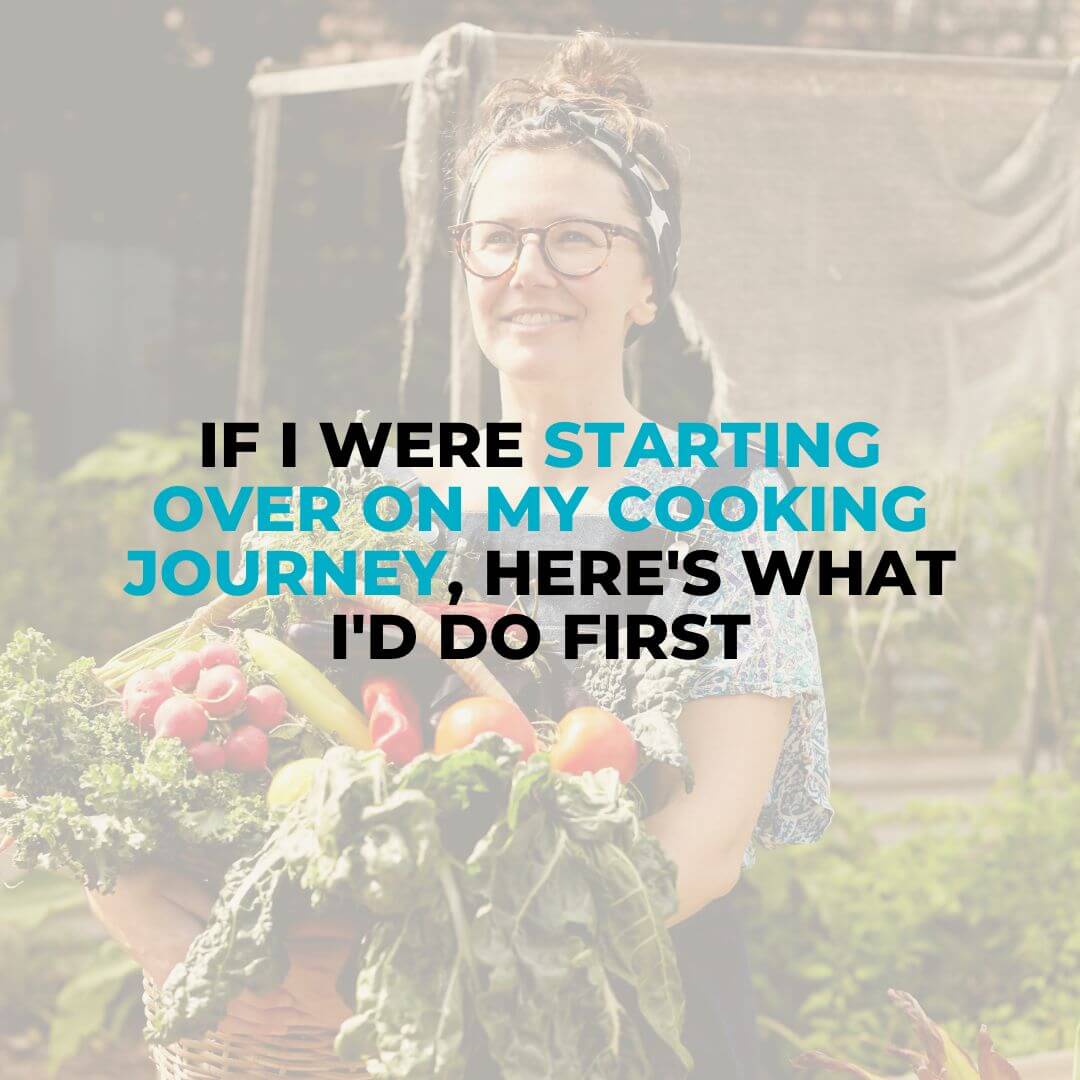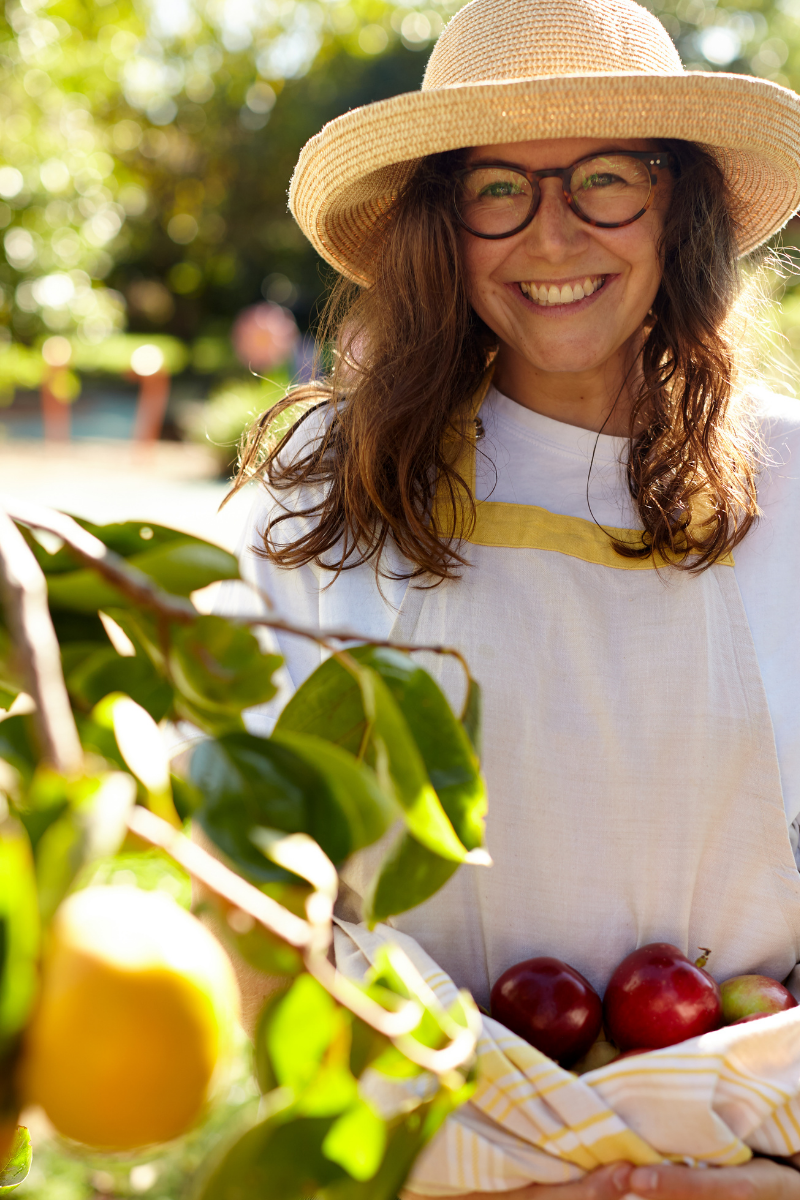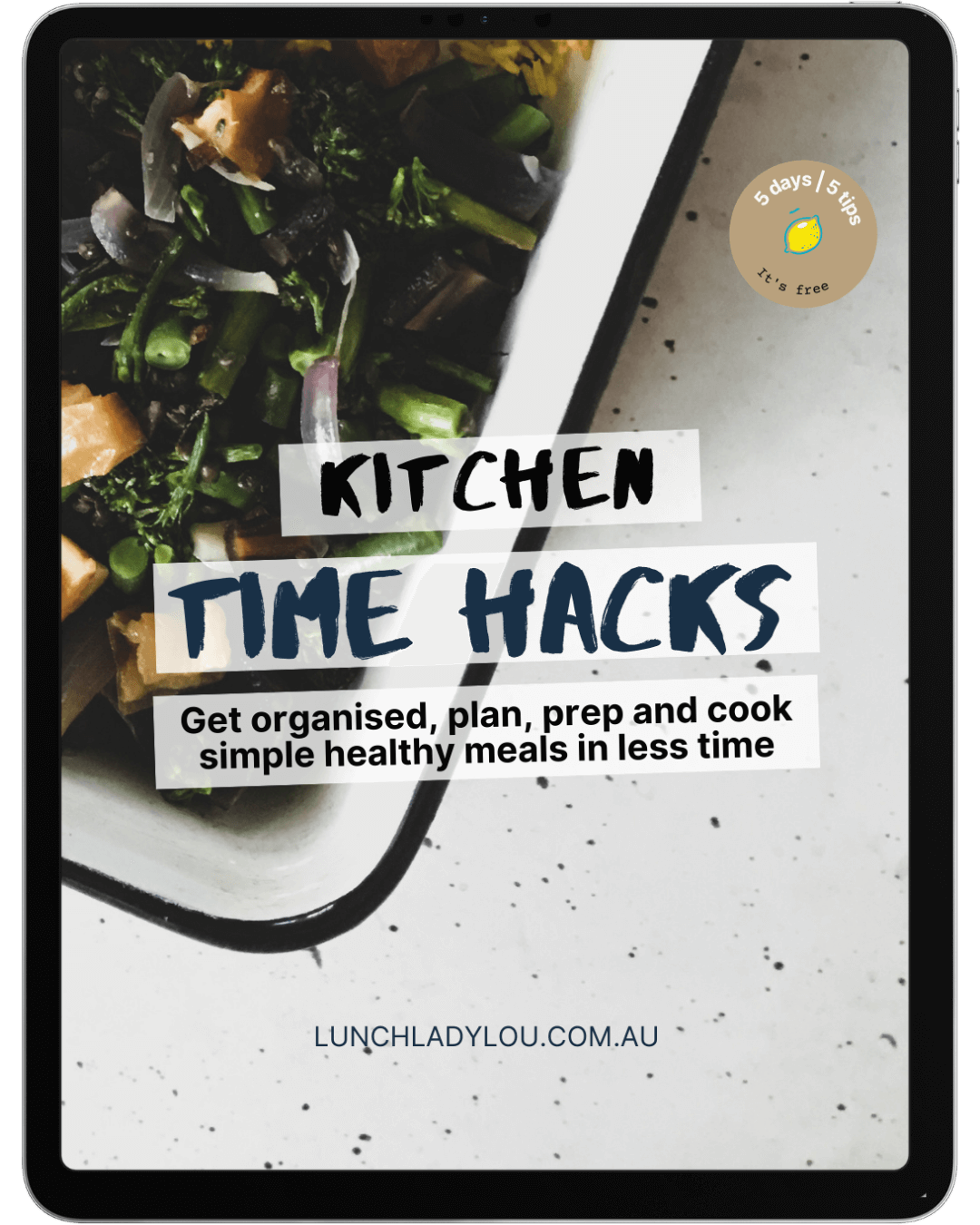9 habits of home cooks
Do you struggle to get in the habit and stay in the habit of home cooking? Do you ever wonder what other home cooks do each week? Today I’m sharing 9 habits of home cooks and what they have in common, as well as what they don’t do.
You might think that people who can cook MUST have had a mum who could cook. I hear it a lot: my mum wasn’t a good home cook, so I’m not. And while a version of this statement is how I believe we’ve gotten to where we are today in a chronic lack of basic skills to cook a decent meal. It doesn’t have to be the end of the conversation. In fact – this is the perfect place to begin.
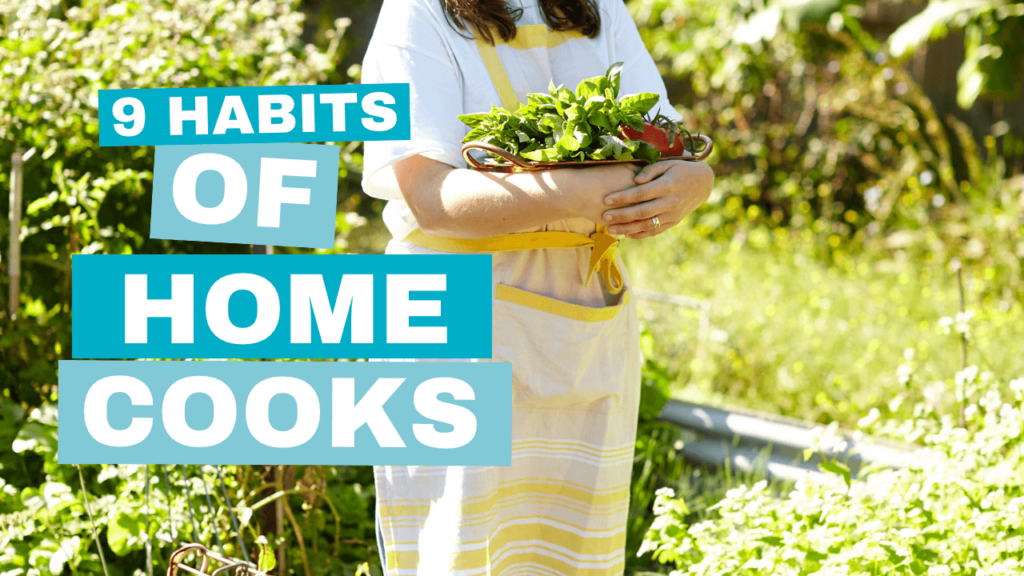
Here are nine habits of home cooks
Let’s start with what these people don’t have in common
Let’s start with a few characteristics that often get misinterpreted as being the reason someone is a home cook or let’s say, an organised home cook who enjoys it.
- They didn’t come from a family that cooked.
- They weren’t born with the cooking gene
- They didn’t always love or like cooking. They have learnt the skill based on their beliefs, values, vision and mission for their life. They may have gotten there through working with a kitchen coach like me. Or following other chefs food philosophy’s. Either way, they got over it and realised they get to make this cooking thing amazing and they have to do for the next 40 years – so why not make it fun.
1: They plan.
They plan on a Friday, Saturday, Sunday, whatever day of the week it is. That works for them. They plan, they meal prep in some way. They kind of look in their free job pantry. They get an idea. They might find a recipe online that works with what they’ve got.
They do something to set themselves up so they know, Ah, I’m going into a new week and this is how it’s going to go.
2: They follow through on their plan in some way or another.
They might look in the fridge and see they have a whole pumpkin, so they plan to make pumpkin soup. Time comes around to it and they say, I don’t really want pumpkin soup.
I feel like pasta, they take that pumpkin, they roast it up, and they make my cheesy vegan pumpkin pasta sauce. But in some way or another, they plan. They plan with what’s in their fridge. They plan with what’s in their freezer, and they plan with what’s in their pantry. It doesn’t need to be perfect, and it doesn’t need to be a strict structured effort.
It can be kind of loose and flowy and I’ve roasted 10 potatoes and I have them to use throughout the week, the end. That’s a good plan.
3: they are busy and they do it anyway.
This whole, I don’t have time to cook is the biggest BS excuse going around. It sounds very cliche. We all have the same 24 hours in a day. What makes someone. Who is a mum with three kids who works full-time or part-time. What makes them cook over someone who is coupled without kids, has a full-time job, but also has more free time? Or vice versa.
What’s the difference? It’s up here – your mindset, your beliefs, your goals and it’s getting over it. So . Get over it.
We all have the same amount of time in the day, and I can’t stress that enough. The thing that gets in the way is that we have misaligned priorities.
We scroll, we see five, 10 minutes of scrolling on the internet, which is very different to five or 10 minutes of working out your meals for the week,
Five or 10 minutes of laying on the lounge, watching TV versus five or 10 minutes of putting some rice in a pot and cooking it so we all have the same hours in the day.
It’s how you use it.
4: they follow the seasons.
They might know that apples in Sydney are in March and April, and that’s when it’s Apple season. Buying apples in October. Maybe not the best thing to do, but they are still available. So buying in season means that your food is fresh. It has the most taste going on.
It’s also the cheapest, which is good if you’re trying to save money on your grocery bill. This also means that when it is pumpkin season, they are buying pumpkins. They take advantage of the seasons to save money. So if it is pumpkin season, pumpkins might come down to a dollar a kilo or $2 a kilo. Let’s just park.
As far a pricing goes and organic versus conventional versus local. Let’s park that for a little bit. That’s an advanced step in this conversation. My aim of this is to get you in the kitchen and cooking for starters, let alone complicating it with all these other things.
They take advantage of their seasons to save money. The pumpkin example, when it’s $1/kg. They see it, they’re buying it. When something is that price, it usually means it’s in season and it’s good quality.
And this is just a little note, if you are someone that buys from a big supermarket chain, you need to start paying attention to the prices in the supermarket for fresh fruit and veg.
And you’ll begin to notice that the prices are pretty stable the whole year. And if you went to a fruit market you’ll notice that the prices will go up and down depending on the season. Green beans shouldn’t be $12.99/kilo all year.
6: they buy in bulk.
This might look like going to the shops and buying a whole chicken instead of buying individual drums, wings, breast, the rest of it.
PS it is way cheaper to buy a whole chicken and very easy to cut it up yourself into its little. Not scary, just you haven’t done it before.
They might go and buy a kilo of mince from a butcher. Instead of buying 500 grams of mince and save a couple of bucks, they might go and buy a big chunk of, eye fillet steak in a kilo or two kilo, three kilo. Portion it up into the steaks that they prefer, and they might save $10 a kilo, maybe more.
Another example: they buy flour in bulk to save money, and they store it correctly.
7: they cook in bulk.
This could look like cooking in bulk for the week, so for example, I have five lunches that I’m going to need for my lunch this week for work. That means I need five bowls of food for the week. I’m going to make roasted pumpkin, roasted potatoes, a batch of soba noodles. I’m going to poach some chicken. I’m gonna make a bigger batch of veggie dip, whatever it is. They’re cooking in bulk somehow.
8: They cook for future them.
This is a version of them cooking in bulk, but a little different.
If they’re making a green chicken curry, they make a double batch and they freeze half. That means they have chicken curry this Tuesday night and the following Tuesday night – they have chicken curry again and it’s just a remove it from the freezer and reheat it. This is smart cooking.
Imagine if you only cooked every second week by following this format?
This is saving your time in the kitchen, saving your personal energy and also your energy bill for your gas or electricity or however you cook. It is preparing you for future you. It’s a gift for future you, for if you get sick. You have a busy week, you have curve balls in your life and you don’t want to cook and you’re almost reaching for that phone to go and order take away. You can look in your freezer and find that chicken curry in there. Boom. Dinner in 10.
9: They stuff it up.
They burn the chicken.
They forget about the noodles.
They over salt the broth.
They stuff it up.
And you know what? They cook again. They learn from what they’ve done.
For example, I made a spinach and fed lasagna the other week and I forgot to ring out all of the water from the spinach. As spinach is a very watery vegetable, like zucchini. If you’re making anything like a tart, frittata, fritters, lasagna, you need to cook it, salt it, and then ring out all of the moisture.
And I was just being smart and silly. (or not so smart and silly). And I didn’t do that. I thought I was taking a shortcut and well, we paid for it with soggy lasagna. But you know what, now I know. For the record, I already knew this. I was trying to shortcut the meal. So now I know again, when I come to make it or I make anything, including spinach, I’m going to remember this.
And it makes me a better cook for next time. You rarely learn from perfection in the kitchen.
Let’s recap on a few characteristics home cooks do not require:
- They didn’t come from a family that cooked.
- They weren’t born with the cooking gene
- They didn’t always love or like cooking. They have learnt the skill based on their beliefs, values, vision and mission for their life. They may have gotten there through working with a kitchen coach like me. Or following other chefs food philosophy’s. Either way, they got over it and realised they get to make this cooking thing amazing and they have to do for the next 40 years – so why not make it fun.
So that’s it for today. Bye.

